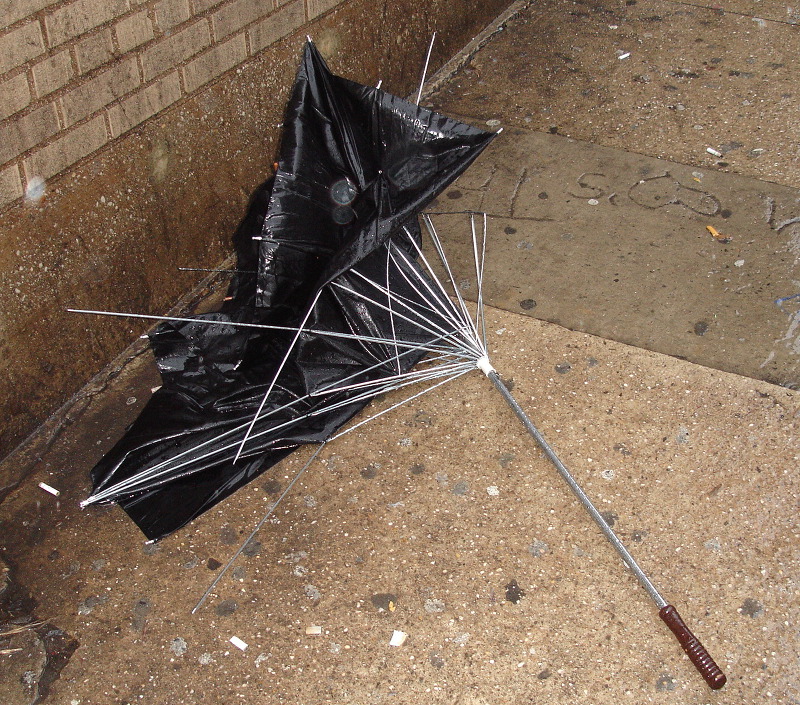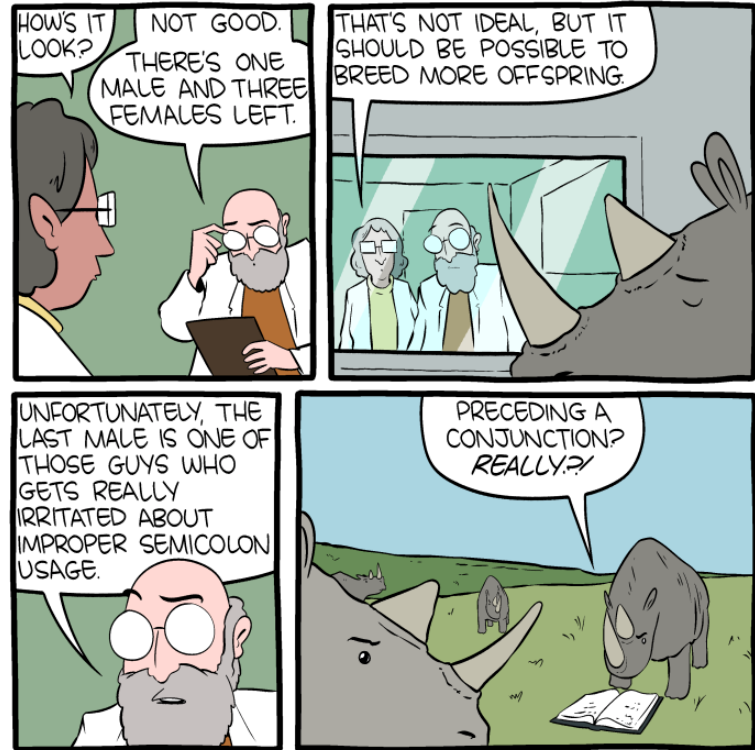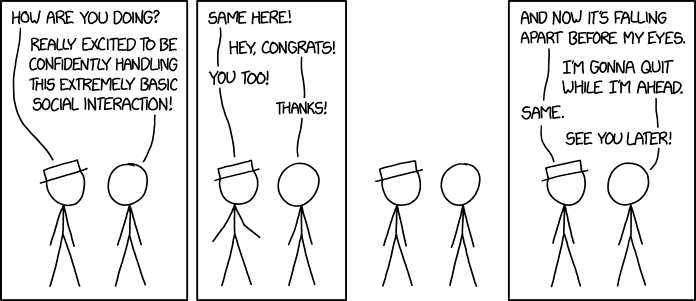Slips of the finger vs. slips of the tongue
There's an interesting and understudied way that typing errors and speaking errors are different. From Gary Dell, "Speaking and Misspeaking", Ch. 7 in Introduction to Cognitive Science: Language, 1995:
One of the most striking facts about word slips, such as exchanges, anticipations, perseverations, and noncontextual substitutions, is that they obey a syntactic category rule. When one word erroneously replaces another, most of the time the target and substituting word are of the same syntactic category. Nouns slip with nouns, verbs with verbs, and so on.
In other words, we're NOT likely to say something like "When one word erroneously replacement another, …" or "exchanges, anticipation, perseverations, and noncontextual substituted […] obey a syntactic category rule".
But errors of this type are fairly common in typing. They seem to be cases where we've started to type the right thing, but as our attention shifts to the following material, our fingers follow a familiar but incorrect path.
Read the rest of this entry »
Prescriptivist statutory interpretation?
The title of this post combines two topics that are popular with the Language Log audience, and that are not usually discussed together. It is also the title of a LAWnLinguistics post from 2012, shortly after the publication of Reading Law, a book about legal interpretation that was co-authored by Justice Scalia and Bryan Garner. It was one of a series of posts that I did about the book—a series of which the last installment has not yet been written.
The post was about whether prescriptivism has any role to play in statutory interpretation (no inside jokes in this title, I'm afraid), and it occurs to me that since many people here will be interested in the topic, it might be a good idea to bring the post back for a return engagement in a larger venue. And because the topic is one that I recently returned to at LAWnLing, I'm going to include the relevant part of that post as well.
Read the rest of this entry »
No word for dead umbrellas?
 Yesterday in Philadelphia we had very strong winds and what the weather people call a "wintry mix", so (along with some big downed trees) there were lots of people holding on to umbrellas turned inside out and partly stripped of their fabric, and lots of wrecked umbrellas discarded along the sidewalks and stuffed into trash cans.
Yesterday in Philadelphia we had very strong winds and what the weather people call a "wintry mix", so (along with some big downed trees) there were lots of people holding on to umbrellas turned inside out and partly stripped of their fabric, and lots of wrecked umbrellas discarded along the sidewalks and stuffed into trash cans.
This naturally raises the question: Is there a word for an umbrella in this condition?
Read the rest of this entry »
Toward a recursive meta-pragmatics of Twitterspheric intertextuality
A few days ago, I posted a post consisting of…
a screenshot of a tweet (by me) consisting of…
a screenshot of a Language Log post (by me) consisting of…
a screenshot of a tweet (by me) consisting of…
a screenshot of a tweet by Lynne Murphy, a linguistics professor, quote-tweeting* an earlier tweet by Benjamin Dreyer, who is (although I didn’t know it at the time) a vice president, Executive Managing Editor, and Copy Chief at Random House.
* retweeting and adding a comment
The post was titled, "There's a fine line between recursion and intertextuality."
A screenshot of the post is provided below the fold—but I hasten to add that I am providing the screenshot solely as a convenience to the reader, to save them the trouble of having to leave this post in order to look at that one, should they be so inclined.
Read the rest of this entry »
ASR error joke of the week
I suspect that this is just as unfair as the old ASR elevator in Scotland skit was, but I don't have time to try it out.
Begging the question of whether to use "begging the question"
The tweets above have extra salience for me, because I used begs the question in the traditional way ('assumes the answer to the question in dispute') in my most recent post on LAWnLinguistics. I did so with some trepidation—not because I was worried that someone would think I was using the phrase wrong, but because I was worried that someone would think I was using it in the 'raise the question' sense and wonder what the question was that I thought was being begged.
Read the rest of this entry »
The curling Kims
One of the sensations of the just concluded Olympics in PyeongChang is that South Korea's Olympic women's curling team won the silver medal.
From the press conference after the final match, as tweeted by Jonathan Cheng (WSJ Seoul Bureau Chief):
Skip Yogurt laments her Korean name 김은정 Kim Eun-jung. That middle character "eun" 銀 is a homonym for silver. She muses on whether she should've changed it to "geum" 金, for gold.
If you weren't following the curling, Cheng calls her "Skip Yogurt" because she's the "skip" of the team (like a captain), and her nickname is Annie because she likes Annie's Yogurt. According to coach Kim, team Kim members chose their own nicknames while eating breakfast, and they decided to go by the breakfast food they like, i.e., pancakes for Young-mi, steak for Kyung-ae, Annie('s yogurt) for Eun-jung, and so forth.
Read the rest of this entry »
The letter * has bee* ba**ed in Chi*a
Since the announcement by the Chinese Communist Party (CCP) yesterday that the President of China would no longer be limited to two five-year terms in office, as had been the case since the days when Chairman Mao ruled, there has been much turmoil and trepidation among China watchers and Chinese citizens. Essentially, it means that Xi Jinping has become dictator for life, which is not what people had been hoping for since Richard Nixon went to China 46 years and 5 days ago. What everyone had expected was that China would "reform and open up" (gǎigé kāifàng 改革開放), which became an official policy as of December, 1978. Instead, all indications from the first five years of Xi's regime and the newly announced policy changes regarding Xi Jinping thought and governance are that China has jumped right back to the 1950s in terms of policies and procedures.
Read the rest of this entry »
Mistranscription of the month
"Florida school shooting: Armed deputy on duty never went inside to confront gunman", Associated Press 2/22/2018:
The sheriff said he was "devastated, sick to my stomach. There are no words. I mean these families lost their children. We lost coaches. I've been to the funerals. I've been to the homes where they sit and shiver. I've been to the vigils. It's just, ah, there are no words."
"Correction: School Shooting-Florida story", Associated Press 2/26/2018:
In a story Feb. 22 about the Florida school shooting, The Associated Press misquoted Broward County Sheriff Scott Israel in some versions of the story when he spoke about the families of the victims. He said, "I've been to their homes where they're sitting shiva," not "where they sit and shiver."
Read the rest of this entry »
The language impact of the Confucius Institutes
The China Daily, which is owned by the CCP, is China's largest circulation English-language newspaper. It ran the following article in today's issue:
"Chinese increasingly heard around the world", by Yang Zhuang (2/24/18).
What with the flood of Chinese tourists, business people, officials, students, and so forth who are travelling to all corners of the globe, there is little doubt that Chinese languages are indeed being heard outside China nowadays more than at any time in the past. But that's a very different matter than the claim made in the CD article that non-Chinese are borrowing more words from Chinese languages than before.
Read the rest of this entry »


